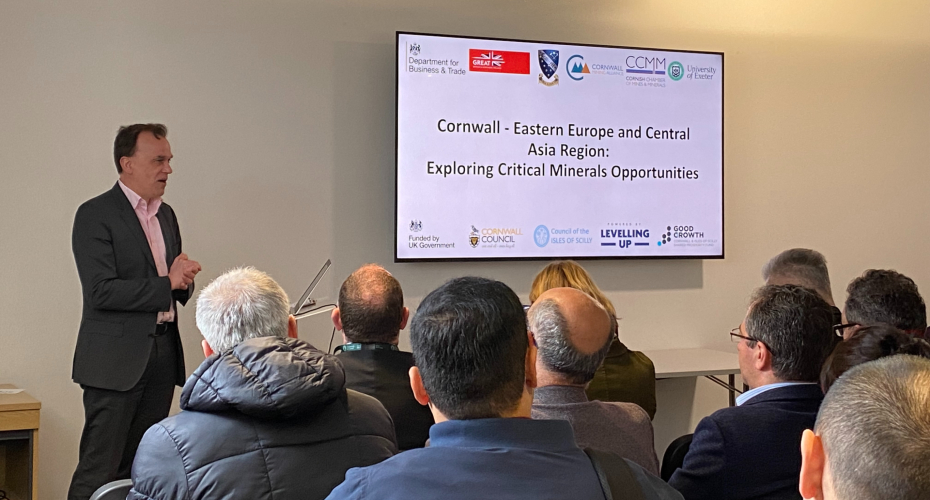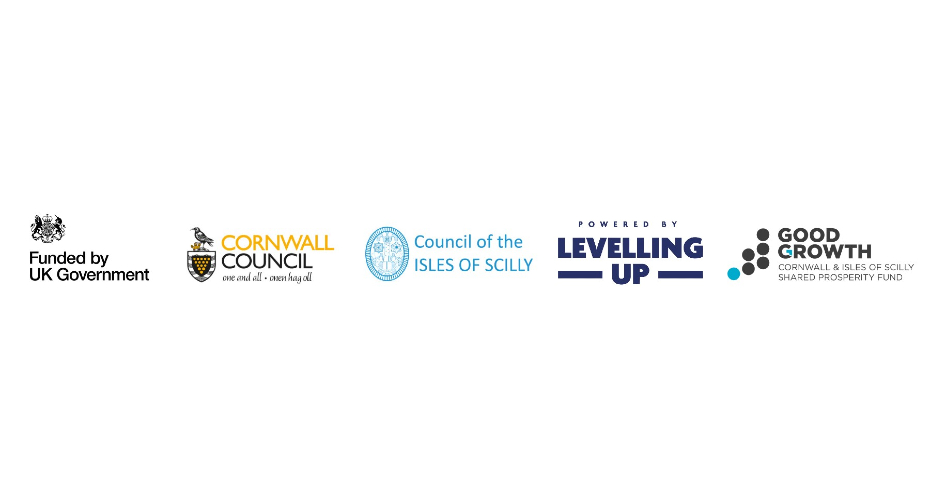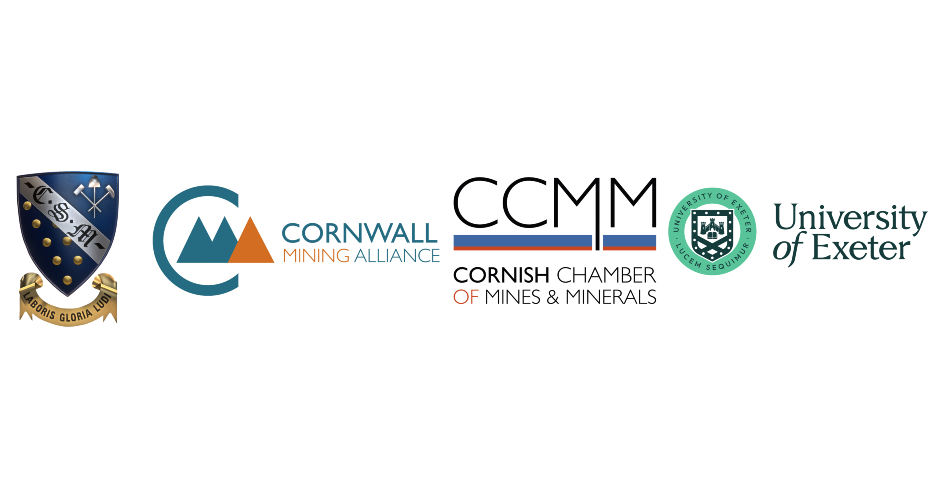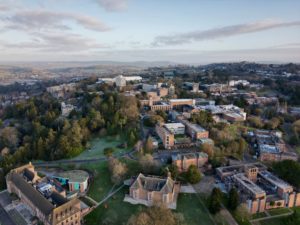University welcomes international guests for showcase of critical minerals in the South West

Professor Martin Siegert addressing guests from the international geo resources community
An international delegation of ministries and businesses have met with the University of Exeter and members of the South West’s critical minerals cluster to discuss opportunities in the emerging geo-resources sector.
Representatives from countries including Kazakhstan, Mongolia, Kyrgyzstan, Armenia, Uzbekistan and Turkey were introduced to Camborne School of Mines and exploration companies based in the region as part of a fact-finding and familiarisation tour.
It also offered local companies the opportunity to network with key industry players and to learn about market access processes in Eastern Europe and Central Asia.
The event was organised by the UK Government’s Department for Business and Trade and was held by the Geo-Resources Strategic Sector Strengthening project at the University’s Penryn Campus.
Professor Martin Siegert, Vice-President and Deputy Vice-Chancellor (Cornwall) welcomed the delegates to the event and provided an overview of the regional landscape – and its national significance.
“If we are to achieve the net zero targets that we have set, then the only realistic way of doing that is to ‘electrify’ our way of life,” Professor Siegert said. “For that, we need metal in our power supplies, processors and batteries, and one of the only places in the UK that has significant metal resources is Cornwall.
“Through Camborne School of Mines, we have a key role to play in the sustainable development of this sector, including through our research and innovation, and knowledge exchange. And events like this really do succeed in bringing together a plethora of stakeholders to explore future opportunities.”
At the event, there were presentations from a host of organisations and businesses, including the Geo-Resources Strategic Sector Strengthening project, which has been established to nurture a self-sustaining Geo-Resources cluster. Also presenting was Cornish Lithium, Imerys, Geothermal Engineering Ltd and Wardell Armstrong International, and there was time set aside for networking and tours of Camborne School of Mines.
Professor Pat Foster, Head of Camborne School of Mines, said: “This visit, along with several others that we have hosted recently from countries including Brazil, South Africa and Canada, demonstrates the international standing of CSM and its reputation with regards to critical metals. It also speaks volumes for the once-in-a-generation opportunity that we have to promote the sector and the role it will play in the transition to greener, cleaner energy.”
Kenan Poleo, His Majesty’s Consul General for Istanbul, and Trade Commissioner for Eastern Europe and Central Asia at the Foreign, Commonwealth and Development Office, added:
“Through collaborative efforts with Camborne School of Mines at the University of Exeter, we are laying the foundation for a 21st century mining sector in Central Asia. Our aim is to put the UK’s expertise in the full mining lifecycle into practice. Low carbon solutions and the suitable development of resources will support the global transition to a cleaner, greener future.
“Events like this, bringing together government and business figures from the region to meet with the University and members of the South West’s critical minerals cluster, are a great example of how UK expertise can help support the industry.”
The Geo-Resources Strategic Sector Strengthening project is a partnership between the University, the Cornish Chamber of Mines and Minerals and Cornwall Mining Alliance. It has received more than £900,000 from the UK Government through the UK Shared Prosperity Fund.
Cornwall Council has been chosen as a Lead Authority for the fund and is responsible for monitoring the progress of projects funded through the UK Shared Prosperity Fund in Cornwall and the Isles of Scilly.
Cllr Louis Gardner, Cornwall Council portfolio holder for economy, said: “Supporting initiatives like this that bring together experts and industry leaders, is vital to make the connections to help unlock the opportunities that critical minerals offer, and how they can contribute to our economic growth and decarbonisation.”
For more information, visit the Good Growth website.





